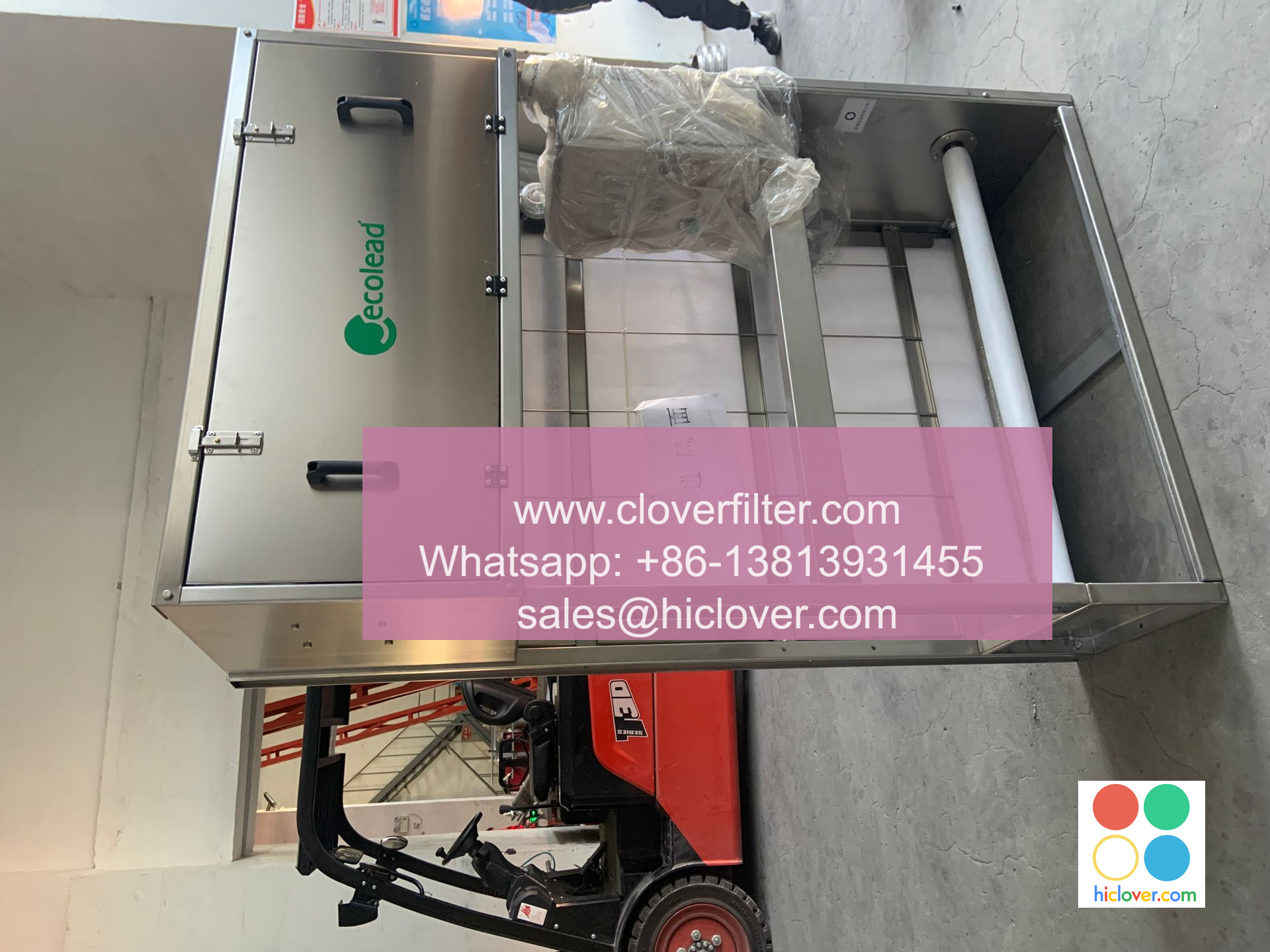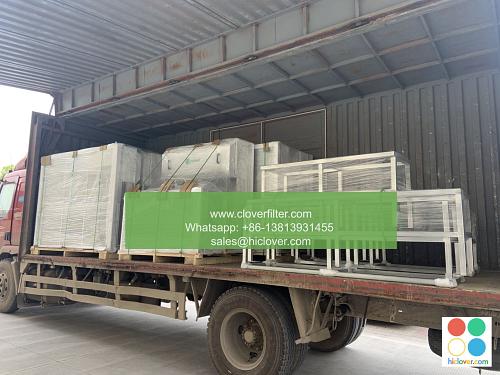Calgary Food Workshop: How Automatic Roll Air Filters Can Reduce Contamination

The Calgary Food Workshop is an esteemed event that brings together food industry professionals, manufacturers, and suppliers to discuss innovative solutions for improving food quality and safety. One of the key topics of discussion at the workshop is the importance of maintaining a clean and contamination-free environment in food processing facilities. In this regard, automatic roll air filters have emerged as a crucial component in reducing contamination and ensuring the quality of food products.
Automatic roll air filters are designed to capture airborne contaminants, such as dust, pollen, and bacteria, that can compromise the quality of food products. These filters are equipped with advanced technology that allows them to automatically roll out a new filter media when the existing one becomes saturated, ensuring continuous and uninterrupted filtration. This feature is particularly useful in food processing facilities where airflow is critical, and any disruption can lead to contamination.
The benefits of using automatic roll air filters in food processing facilities are numerous. Firstly, they help to reduce the risk of contamination by removing airborne particles that can carry bacteria, viruses, and other microorganisms. This is especially important in facilities where food products are processed, packaged, and stored, as contamination can have severe consequences for consumer health. Secondly, automatic roll air filters help to maintain a clean and healthy environment for workers, reducing the risk of respiratory problems and other health issues associated with poor air quality.
Another significant advantage of automatic roll air filters is their ability to improve the overall efficiency of food processing facilities. By providing a consistent and reliable airflow, these filters help to maintain optimal temperatures, humidity levels, and air pressures, which are critical for various food processing applications. Additionally, automatic roll air filters can help to reduce energy consumption and lower maintenance costs, as they are designed to operate continuously without the need for frequent replacements or manual interventions.
In terms of regulatory compliance, automatic roll air filters can help food processing facilities meet stringent food safety standards and regulations. For example, the Canadian Food Inspection Agency (CFIA) requires food processors to implement effective control measures to prevent contamination and ensure the quality of food products. Automatic roll air filters can be an essential component of these control measures, helping facilities to demonstrate compliance with regulatory requirements and maintain a high level of food safety.
Furthermore, automatic roll air filters can be integrated with other food safety technologies, such as air purification systems and sanitation protocols, to create a comprehensive food safety program. This integrated approach can help food processing facilities to identify and mitigate potential contamination risks, ensuring the quality and safety of food products throughout the entire production process.
In conclusion, automatic roll air filters are a vital component in reducing contamination and ensuring the quality of food products in food processing facilities. Their ability to capture airborne contaminants, maintain a clean and healthy environment, and improve overall efficiency makes them an essential investment for any food processing facility. By incorporating automatic roll air filters into their food safety protocols, facilities can demonstrate their commitment to regulatory compliance, consumer health, and the quality of their products.
Conclusion
In summary, the Calgary Food Workshop highlights the importance of innovative solutions, such as automatic roll air filters, in maintaining a clean and contamination-free environment in food processing facilities. By understanding the benefits and advantages of these filters, food industry professionals can make informed decisions about implementing effective control measures to prevent contamination and ensure the quality of food products.
FAQs
Q: What are automatic roll air filters, and how do they work?
A: Automatic roll air filters are designed to capture airborne contaminants, such as dust, pollen, and bacteria, that can compromise the quality of food products. They are equipped with advanced technology that allows them to automatically roll out a new filter media when the existing one becomes saturated, ensuring continuous and uninterrupted filtration.
Q: What are the benefits of using automatic roll air filters in food processing facilities?
A: The benefits of using automatic roll air filters include reducing the risk of contamination, maintaining a clean and healthy environment for workers, improving overall efficiency, and helping facilities meet regulatory compliance requirements.
Q: Can automatic roll air filters be integrated with other food safety technologies?
A: Yes, automatic roll air filters can be integrated with other food safety technologies, such as air purification systems and sanitation protocols, to create a comprehensive food safety program.
Q: How do automatic roll air filters help food processing facilities demonstrate regulatory compliance?
A: Automatic roll air filters can help food processing facilities demonstrate regulatory compliance by providing a consistent and reliable airflow, which is critical for maintaining optimal temperatures, humidity levels, and air pressures, as required by food safety regulations.

